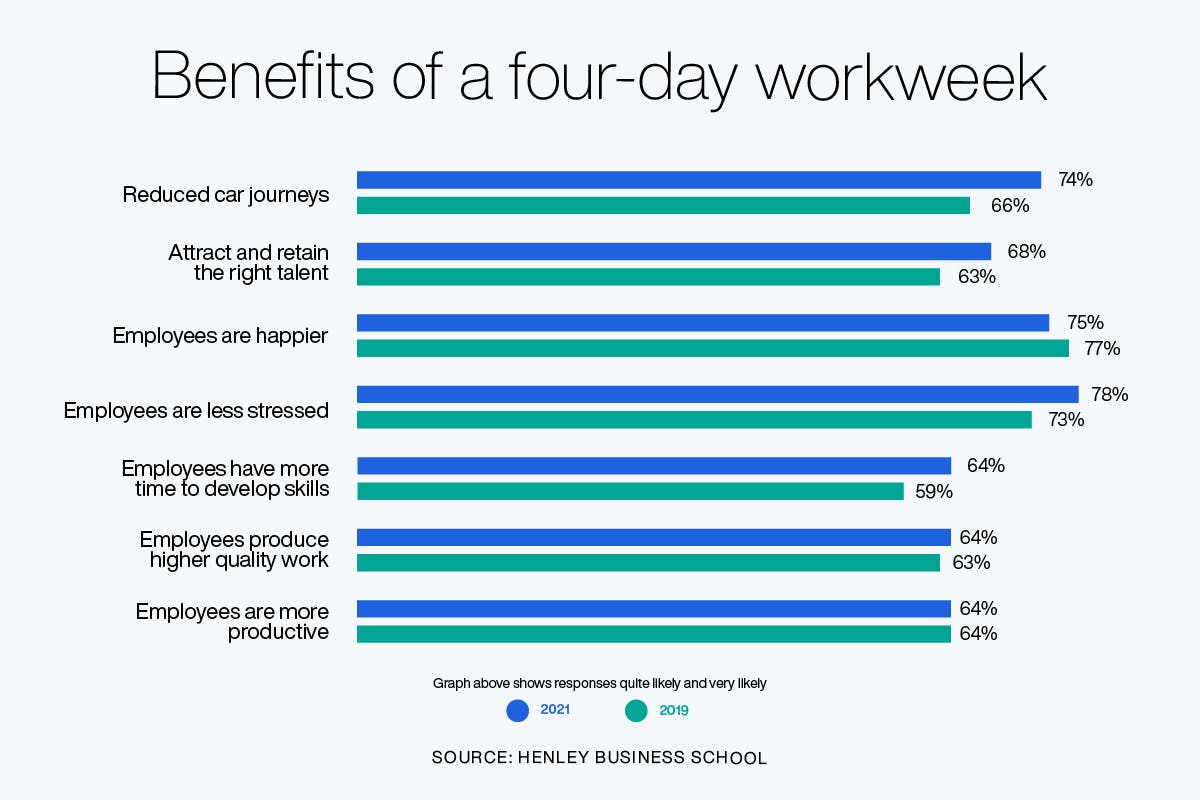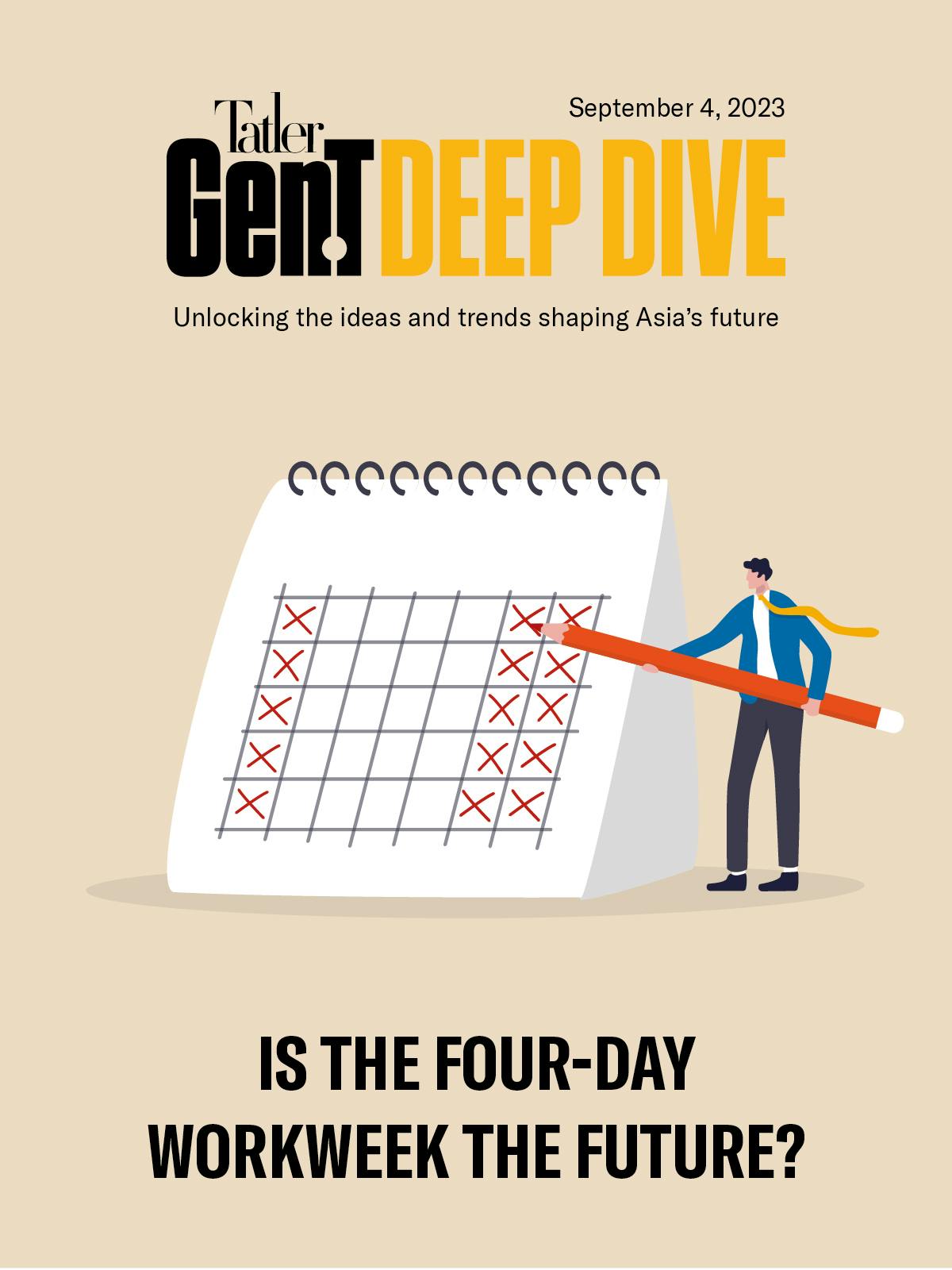Embracing the four-day workweek
Moving to a four-day workweek has been gaining massive traction in recent years. But are fewer work days better for business? Let’s take a Deep Dive.
📅 The five-day workweek is so firmly established that one might mistake it as a norm that has existed since time immemorial. But it actually only hit the mainstream about a hundred years ago.
✝️ Before the 1920s, the norm was a six-day working week—Western economies favoured Christian doctrine and the tradition of a restful Sunday. A change to only five working days was seen at the time as radical and its proponents as lazy.
😠 Today, we are faced with a new movement to change the balance between time spent working and time at rest. While the four-day working week may have its detractors as being too optimistic about its sustainability, recent research makes it a very tempting proposition.
BY THE NUMBERS

24% A 24 percent increase in work-life balance was reported during a four-day workweek trial in New Zealand. This also featured a 7 percent stress level drop, with no loss in productivity noted.
144 Under the 4 Day Week Campaign’s accreditation scheme in the United Kingdom, there are 144 employers now listed who support the movement.
40% In a four-day workweek trial conducted in Japan, it was reported there was a 40 percent increase in productivity.
QUIZ
Which 20th-century business leader is credited for normalising our current five-day workweek?
A. William Randolph Hearst
B. Thomas Edison
C. Henry Ford
Scroll to the bottom of the email for the answer.
Did you know?

While the prospect of a four-day workweek has been discussed for decades, remote working during the pandemic reignited interest as it showed the potential for alternate work modes.
THE EDIT
🔟 It could be the norm within ten years. That's the perspective of many managers, especially as younger generations take over the C-suite.
🤷🏻 European countries are on board but Asian ones are less so. Office culture in Asia puts a lot of emphasis on hours spent at desks and bosses may balk at reducing that.
🤖 AI may make it essential. The four-day workweek may be needed thanks to massively increased productivity, making five days a week per worker pointless.
THE FULL PICTURE

Employers are consistently seeing high levels of benefit across the board when using a four-day workweek model.
KEY PLAYER
Juliet Schor
Juliet Schor is an economist and professor of sociology at Boston College. She serves on the academic board of 4 Day Week Global, a non-profit platform for four-day week supporters. Schor drew wide attention for her Ted talk about the findings from a successful worldwide pilot program of the four-day model.

HONOUREE TO KNOW
Megan Lam
While you may need to wait until four-day workweeks are embraced in Asia, it is worth looking into ways to modify your personal routines to improve your physical and mental health. Megan Lam is the founder and CEO of Neurum Health, the company behind the Clara app, which uses AI to determine the behavioural health needs of its individual users.

ONE FINAL THING

In 1930, legendary economist John Maynard Keynes predicted that by 2030 we would be working 15 hours a week and our greatest issue would be finding ways to fill our free time. While perhaps overly optimistic, his creative approach to labour’s role in capitalism is worth everyone taking a look at.



